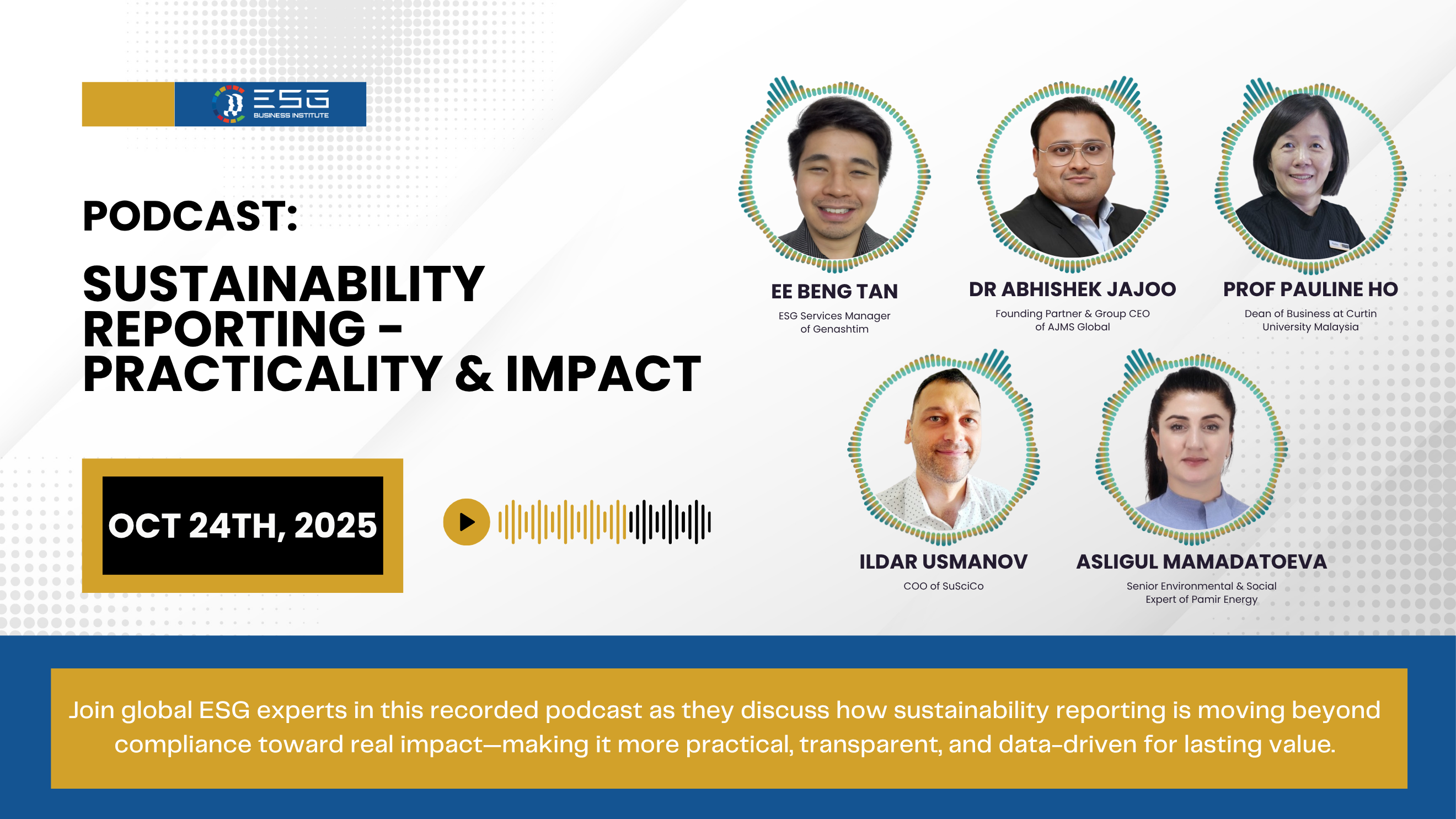Written by Nur Asmira
03 November 2025

Sustainability reporting has become a critical requirement for organisations globally. In the ESG Business Institute’s recent podcast, “Sustainability Reporting – Practicality and Impact,” industry experts Dr. Abhishek, Dr. Pauline, and Ildar Usmanov shared their perspectives on how companies can produce reports that are both practical and impactful.
The discussion highlighted that defining a clear and realistic scope is essential. Dr. Abhishek noted that many organisations in the GCC align their reporting with national sustainability goals such as Saudi Vision 2030 or the UAE’s Net Zero 2050.
Ildar added that smaller or early-stage companies should not delay their journey:
“Start somewhere — even if it’s just tracking emissions or social impact. Reporting is a continuous journey.”
Dr. Pauline clarified that while ESG and sustainability reporting are often used interchangeably, they serve different purposes. ESG reporting focuses on financial and risk perspectives, while sustainability reporting communicates broader value creation and long-term impact across all stakeholders.
The panel also emphasised the importance of credible data and strong leadership support. Ildar observed that organisations often get lost in excessive data collection and lose sight of what truly matters. The key is to focus on information that is material and relevant to business goals and stakeholder expectations.
Transparency was another major theme. Dr. Pauline stressed that authenticity builds trust:
“Be honest about challenges and share how you plan to improve. Stakeholders value honesty over perfection.”
While technology and AI play an increasing role in sustainability reporting, the experts agreed that these tools should complement — not replace — human expertise. As Dr. Abhishek pointed out, AI is only as effective as the data and context it is trained on.
Both Ildar and Dr. Pauline concluded that organisations should build internal capabilities rather than rely entirely on consultants. External expertise is valuable in the early stages, but long-term ownership of sustainability must come from within.
In essence, sustainability reporting is not merely a compliance exercise — it is a reflection of a company’s accountability, transparency, and commitment to sustainable growth. The path forward lies in starting small, remaining consistent, and focusing on meaningful impact.
Additionally, we will be publishing a white paper to further explore the key insights discussed in this podcast and provide actionable strategies for companies to improve their sustainability reporting practices. Stay tuned for more details on this upcoming release.
Want to dive deeper? Sign up as an ESG Business Institute Member to view the full recording of this podcast and gain access to more exclusive insights.
